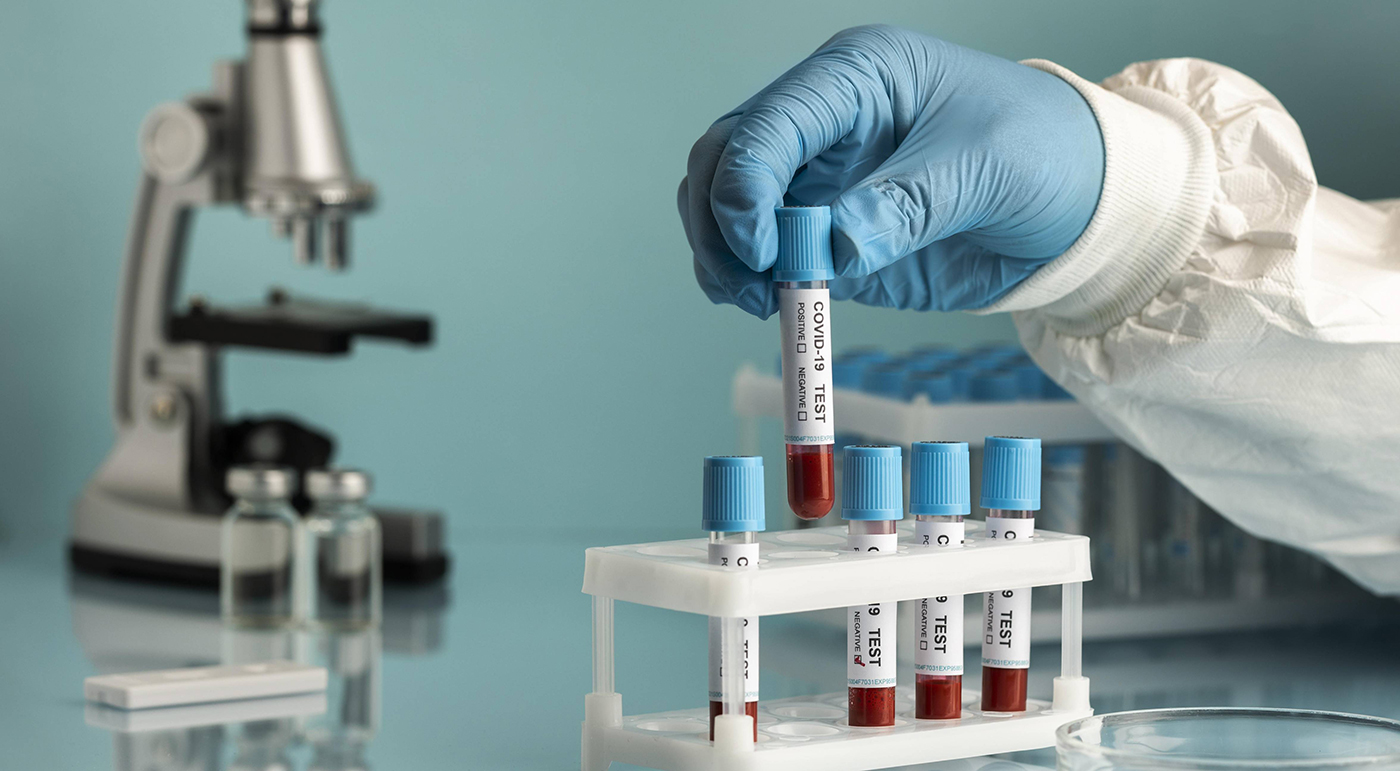
Understanding Essential Health Screenings

Health screenings are essential in preventive healthcare. They help detect potential health problems before they become serious, allowing for early intervention and treatment. These screenings are like a roadmap, guiding you towards better health by catching potential issues early. Have you ever wondered what those routine health tests your doctor orders are all about? This guide will break down some common health screenings, explaining their purpose and significance in simple, relatable terms.
Complete Blood Count (CBC): The Body’s Health Report Card
A Complete Blood Count (CBC) is like a report card for your blood. It measures different components, such as red blood cells, white blood cells, and platelets. This test can reveal infections, anemia, and even signs of certain cancers. If your CBC results are off, it could mean your body isn’t getting the oxygen it needs, or you might be at risk for infections and other complications, making it a crucial indicator of overall health.
Random/Fasting Blood Glucose: The Sugar Tracker
Checking your blood glucose levels, whether random or fasting, is crucial for detecting diabetes. Imagine your bloodstream as a highway, and glucose as the cars. Too many cars (high blood sugar) can cause traffic jams, leading to serious complications. This test ensures your “traffic” is flowing smoothly, helping prevent severe complications like nerve damage and cardiovascular issues.
HbA1c: The Long-Term Glucose Gauge
The HbA1c test measures your average blood sugar levels over the past 2-3 months. It’s like a weather forecast, showing you the overall trend of your blood sugar levels. Consistently high HbA1c levels indicate poor blood sugar control, putting you at risk for diabetes-related complications such as vision loss, heart disease, and kidney damage.
Lipid or Cholesterol Profile: The Heart Health Monitor
A lipid profile checks your cholesterol levels, including HDL (good cholesterol), LDL (bad cholesterol), and triglycerides (a type of fat in your blood that stores unused calories). High levels can lead to plaque buildup in your arteries, much like a clogged pipe, which can eventually cause heart disease or stroke. Maintaining healthy cholesterol levels is vital for a healthy heart and avoiding cardiovascular problems.

Erythrocyte Sedimentation Rate (ESR): The Inflammation Detective
The ESR test measures how quickly red blood cells settle at the bottom of a test tube. Fast sedimentation can indicate inflammation in the body. This test acts like a smoke detector, alerting you to underlying inflammation that might need further investigation, which could be a sign of conditions like autoimmune diseases, infections, or cancer.
Kidney Function Tests: The Body’s Filtration Check
Kidney function tests, such as creatinine and blood urea nitrogen (BUN), assess how well your kidneys are filtering waste from your blood. Your kidneys are like a coffee filter; if they’re not working properly, toxins can build up in your body, potentially leading to chronic kidney disease, high blood pressure, anemia, and nerve damage.
Liver Function Tests: The Detox Department’s Report
Liver function tests measure enzymes and proteins in your blood that indicate how well your liver is working. Your liver is your body’s detox department, processing everything you consume. If it’s not functioning properly, toxins can accumulate, leading to liver disease, hepatitis, or cirrhosis, which can result in jaundice, bleeding disorders, and liver failure.
Thyroid Screen: The Metabolism Manager
A thyroid screen checks your thyroid hormone levels to ensure your thyroid gland is functioning properly. Your thyroid is like your body’s thermostat, regulating your metabolism. An imbalance can cause issues like weight gain, fatigue, and mood swings. If left untreated, thyroid imbalances can lead to conditions like hypothyroidism or hyperthyroidism, affecting your energy levels and overall health.

Bone Mineral Status: The Bone Strength Indicator
A bone mineral density test measures the strength of your bones, detecting conditions like osteoporosis. Imagine your bones as the framework of a building; strong bones keep the structure solid, while weak bones can lead to fractures and other issues. Low bone density increases the risk of fractures and osteoporosis, impacting your mobility and overall quality of life.
Basic Immunology: The Immune System Check
Basic immunology tests evaluate your immune system’s response to infections and diseases. Your immune system is your body’s defense team, and these tests ensure it’s ready to fight off invaders. A weak immune response can leave you vulnerable to infections and diseases, compromising your overall health and resilience.
Hepatitis B Screening: The Liver Protector
Hepatitis B screening checks for the Hepatitis B virus, which can cause serious liver damage. Early detection is crucial for preventing liver disease and ensuring proper treatment. A positive result can lead to chronic hepatitis B infection, increasing the risk of liver cirrhosis and liver cancer.
Urinalysis: The Urinary System’s Status Report
A urinalysis examines your urine for signs of kidney disease, diabetes, and urinary tract infections. Think of it as a maintenance check for your urinary system, ensuring everything is functioning smoothly. Abnormal results can indicate infections, kidney disease, or diabetes, requiring further investigation and management.
Stool Occult Blood Test: The Digestive Health Detective
This test checks for hidden blood in your stool, which can indicate issues like colon cancer or gastrointestinal problems. It’s like a detective looking for clues that might indicate a deeper issue. Hidden blood in stool can signify colon cancer, requiring immediate follow-up and treatment.
Chest X-Ray: The Lung and Heart Snapshot
A chest X-ray provides images of your lungs and heart, helping detect conditions like pneumonia, lung cancer, and heart problems. It’s a quick and painless way to get a clear picture of your chest’s health. Abnormal results can indicate infections, lung disease, or heart problems, necessitating further investigation and treatment.
Electrocardiogram (ECG): The Heartbeat Monitor
An ECG records the electrical activity of your heart, detecting irregularities like arrhythmias and signs of heart disease. It’s like a recording of your heart’s rhythm, ensuring it’s beating properly. Irregularities in ECG can signal heart disease or arrhythmias, leading to an increased risk of heart failure or stroke.
Prostate Cancer Screening: The Prostate Health Protector
Prostate cancer screening, including the PSA test, helps detect prostate cancer early. Early detection is key for effective treatment and can significantly improve outcomes. Elevated PSA levels can indicate prostate cancer, requiring further tests and potential treatment.
Pap Smear: The Cervical Health Guardian
A Pap smear tests for abnormal cells in the cervix that could indicate cervical cancer or precancerous conditions. It’s like a security check for your cervix, ensuring everything is as it should be. Early detection of abnormal cells can prevent cervical cancer, making this test crucial for women’s health.
Pelvic Ultrasound: The Reproductive System’s Lookout
A pelvic ultrasound provides images of the reproductive organs, helping detect conditions like ovarian cysts, fibroids, and other abnormalities. Think of it as a window into your reproductive health, offering insights that can guide treatment and prevent complications. Detecting issues early can prevent infertility, chronic pain, and other reproductive health problems.
Mammogram or Breast Ultrasound: The Breast Health Protector
A mammogram or breast ultrasound checks for lumps or abnormalities in the breast tissue, which can indicate breast cancer. This screening is like a safety net, catching potential issues before they develop into more serious problems. Early detection of breast cancer significantly improves the chances of successful treatment and recovery.

Understanding and regularly undergoing these essential health screenings can make a significant difference in maintaining your overall health. Just like regular maintenance keeps your car running smoothly, they provide valuable insights into how your body is functioning, allowing for early detection and treatment of potential issues. Remember, staying informed and proactive about your health is the best way to ensure a healthier future. Schedule your health screenings here.
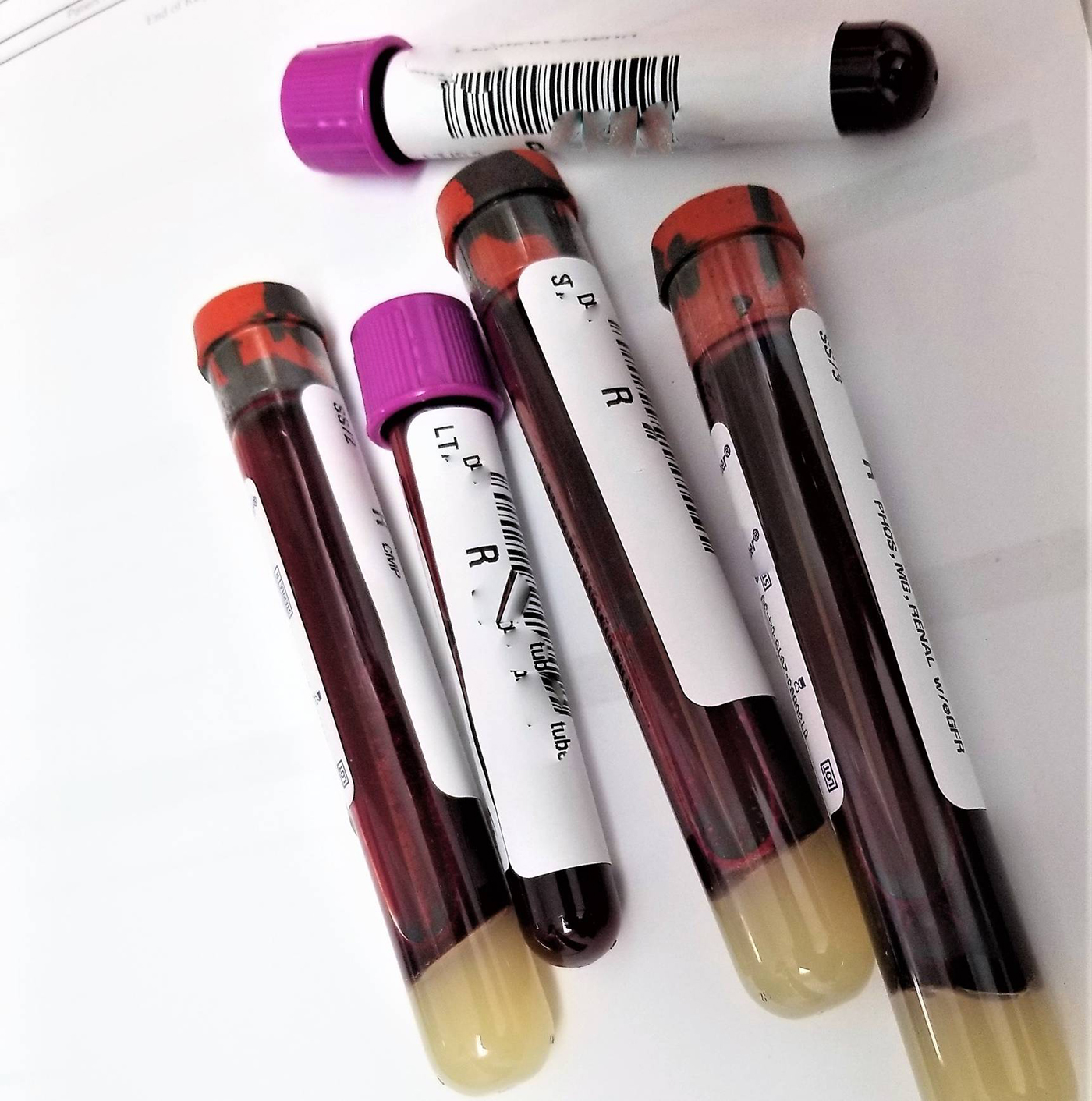
How Health Screenings Tests Keep The Body At Optimal Function
Like superheroes need regular check-ups and maintenance on their gear, our bodies benefit greatly from regular health screenings. These proactive tests can identify potential health issues early on, often before you even experience any symptoms. Early detection is key, as it allows for timely treatment and management, leading to a healthier, happier you. How do these essential tests keep different parts of your body functioning at their best? Let’s find out!
Blood Tests: Unmasking Hidden Health Threats
First up, we have our blood tests. These tests analyze your blood, revealing valuable clues about your internal health.
- Complete Blood Count (CBC): This test checks your red and white blood cells, platelets, and hemoglobin. It can detect signs of anemia, infection, or blood disorders, helping you address these issues promptly.
- Blood Sugar Tests (Random/Fasting Blood Glucose and HbA1c): These tests measure your blood sugar levels, crucial for detecting diabetes or prediabetes early. Early detection allows for lifestyle changes and treatment to prevent complications.
- Lipid Profile: This test measures your “good” and “bad” cholesterol levels, along with triglycerides, assessing your risk for heart disease and stroke. Keeping cholesterol in check is vital for cardiovascular health.

Comprehensive Body System Assessments
- Health screenings extend beyond blood work, targeting various body systems to keep them functioning smoothly.
- Urinalysis: This simple test analyzes your urine to detect potential problems like urinary tract infections, kidney issues, or diabetes.
- Stool Occult Blood Test: This test checks for hidden blood in your stool, which could indicate digestive problems like colon cancer.
- Liver Function Tests: These tests measure enzymes and proteins in your blood, assessing the health of your liver and detecting liver diseases early.
- Kidney Function Tests: These tests evaluate how well your kidneys are filtering waste from your blood, crucial for preventing chronic kidney disease.
- Basic Immunology Panel: This panel evaluates your immune system’s functionality, detecting immune deficiencies and autoimmune disorders.

Ensuring Bone Health
Don’t forget your bones. The Bone Mineral Density (BMD) test is like a report on your bone strength. It helps detect osteoporosis, a condition that weakens bones and increases fracture risk. Early detection allows for treatments that prevent fractures and maintain strong bones.
Detailed Imaging for Specific Health Concerns
Sometimes, a closer look is necessary. Imaging tests provide detailed insights into specific health concerns.
- Chest X-Ray: This imaging test provides a view inside your chest, helping detect issues like pneumonia, heart problems, or lung abnormalities.
- Electrocardiogram (ECG): This test measures the electrical activity of your heart, detecting abnormalities in heart rhythm and structure, crucial for diagnosing cardiac issues.
- Mammogram: An x-ray of the breast that detects breast cancer early, increasing the chances of successful treatment.
Prostate Health Screening for Men
- For men’s health, prostate screening plays a vital role. The Prostate-Specific Antigen (PSA) Test measures the level of PSA in the blood, which can be an early indicator of prostate cancer. Early detection through regular screenings can lead to better management and treatment outcomes, reducing the risk of advanced prostate cancer.
Essential Screenings for Women’s Health
- For women’s health, we have the Pap smear and HPV test duo. These tests work together to screen for cervical cancer and precancerous changes. Early detection is crucial for preventing cervical cancer and ensuring timely treatment.

Taking Charge of Your Health
Health screenings are your allies in maintaining optimal health. Talk to your doctor about which screenings are right for you based on your age, family history, and overall health. By taking a proactive approach to your health, you can empower your body’s superheroes and live a long, healthy life.
Remember, regular health screenings play a crucial role in early detection and prevention of potential health issues. Make them a part of your healthcare routine to ensure you stay on top of your health game. Schedule your next health screening here and take the first step towards a healthier future.

How Often Should You Have General Wellness Screenings?
General wellness screenings are essential for maintaining good health and detecting potential problems early. Like routine maintenance for your car; they keep everything running smoothly and catch issues before they become big problems. How often should you have these screenings? The frequency of these screenings can depend on several factors, including age, gender, and overall health. Let’s explore the different factors.

Age: The Key Factor in Screening Frequency
Under 30: Establishing a Baseline
In your 20s, annual wellness check-ups are generally sufficient to establish a health baseline. These visits include basic tests like blood pressure, cholesterol levels, and a complete blood count (CBC). If there’s a family history of certain conditions, more frequent screenings might be recommended.
Ages 30-50: Monitoring Changes
As you enter your 30s and 40s, annual check-ups remain important to monitor changes. Additional screenings for conditions like diabetes and thyroid disorders may be added. Women should consider mammograms and pelvic ultrasounds around age 40, while men should discuss prostate screenings by age 50.
Over 50: Staying Vigilant
For those over 50, more frequent screenings are crucial. Annual visits should include tests for blood glucose levels, kidney and liver function, and bone mineral density. Both men and women should consider colonoscopies for colorectal cancer screening. Women should continue regular mammograms, and men should maintain prostate screenings.

Gender: Tailoring Screenings to Your Needs
Women: Focused Health Checks
Women should start pap smears and pelvic ultrasounds in their 20s and continue as recommended. Mammograms become vital from age 40 onward for early detection of breast cancer. Bone density tests should also be discussed around menopause.
Men: Specialized Screenings
Men should monitor prostate health starting around age 50 with regular exams for early detection of prostate cancer. Regular checks for cholesterol and blood pressure are essential as men are more prone to cardiovascular issues.

Overall Health: Individualized Screening Plans
Chronic conditions like diabetes, heart disease, or hypertension require more frequent monitoring. Your doctor will tailor a screening schedule that may include regular blood tests, kidney and liver function tests, and more frequent blood pressure checks.
Family History: Early and Often
A family history of certain conditions may require earlier and more frequent screenings. For instance, if heart disease is familial, cholesterol and blood pressure checks might start earlier. Cancer history might necessitate more frequent mammograms or colonoscopies.
Lifestyle Factors: Adjusting Frequency
Lifestyle choices influence screening needs. Smokers should have more frequent lung health checks, while sedentary individuals may need regular screenings for diabetes and heart disease. Healthy diets and exercise can sometimes reduce screening needs but discuss with your doctor first.
When to Seek Additional Screenings
Even with regular check-ups, seek additional screenings if you experience unexplained symptoms like persistent fatigue, sudden weight changes, or unusual pain. Prompt attention to symptoms ensures timely management and treatment.
Staying proactive with regular wellness screenings is essential for maintaining your health. While general guidelines provide a starting point, work with your doctor to create a personalized screening schedule that meets your specific needs. Early detection through screenings can significantly impact treatment outcomes and overall well-being. So, schedule those appointments and invest in your long-term health. Your future self will thank you. Book an appointment here for your wellness screening and ensure peace of mind for yourself and your family. Early detection saves lives – make it a priority. Schedule your screenings here
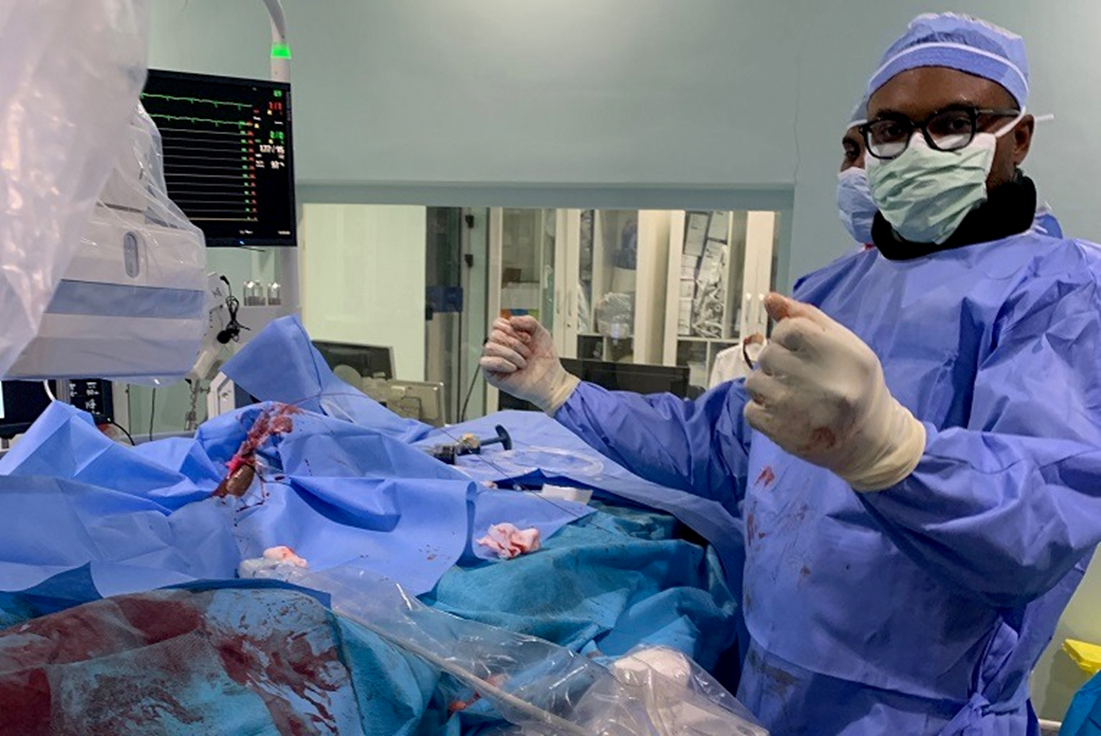
Interventional Radiology
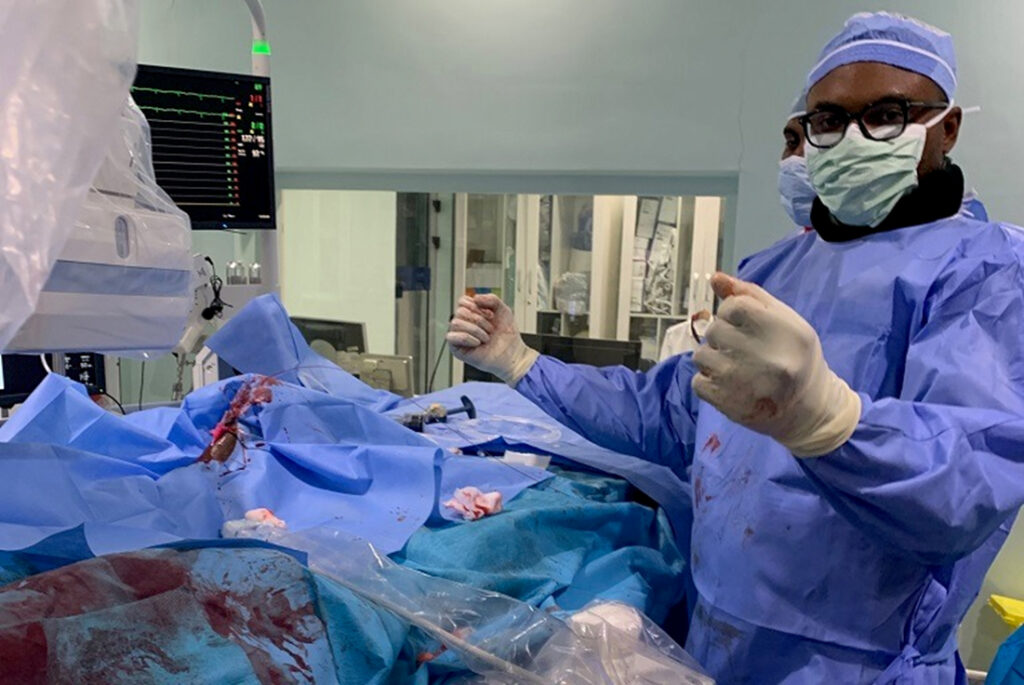
Interventional Radiology: The Future of Minimally Invasive Medical Treatment
Introduction Interventional Radiology (IR) is an advanced medical specialty that uses minimally invasive techniques and advanced medical imaging technology to diagnose and treat various health conditions.
This innovative medical treatment approach offers patients several key benefits, including reduced recovery time, decreased pain and risk, and more cost-efficient procedures.
With technological advancements continuing to drive the growth of interventional radiology, the future looks bright for this exciting and highly impactful medical specialty.
Interventional Radiologists (IR) – What They Do
Euracare is proud to have two of West Africa’s leading experts in IR, Dr. Hammed Ninalowo and Dr. Benjamin Sarkodie, who are at the forefront of providing exceptional care to patients using this specialized treatment method.
Dr Hammed Ninalowo, is a US-trained Vascular and Interventional Radiologist who completed his training at the prestigious University of Pennsylvania and is the first US-trained Physician to offer the full spectrum of interventional Radiology services in Nigeria.
Dr. Benjamin Sarkodie is a fellow of the West African College of Surgeons and is Euracare Ghana’s Medical Director and Head of Radiology. Dr. Benjamin was the first Interventional Radiologist in Ghana.
The minimally invasive nature of IR reduces recovery duration, pain, and medical risk to patients who typically require conventional “open surgery.” With continuous technological advancement, the treatments IR can successfully perform are advancing and expanding.
Interventional Radiology is performed by an Interventional Radiologist, who uses medical imaging technology to guide a catheter or other small instruments through the body to the treatment area.
The Interventional Radiologist then performs the procedure while monitoring the real-time images of the treatment area, ensuring maximum precision and accuracy.
Procedures carried out by Interventional Radiologists
Interventional Radiologists perform a number of procedures. These including:
- Blocked Fallopian tubes
- Closed vessels
- Malignant tumors: lungs and liver cancer
- Fibroid embolization
- Non-healing ulcers on diabetic patient’s legs
- Angiography
- Angioplasty
- Stenting
- Thromboly
- Embolization of GI bleeds
- Ablation
- Transjugular Intrahepatic Portosystemic Shunt- TIPS
- Image-guided Biopsy
- Venous Access
- Gastrointestinal Interventions
- Hepatobiliary Interventions
- Gynaecologic Intervention
- Genitourinary Interventions
- Arterial and Venous Interventions
- Dialysis Access Intervention
- Musculoskeletal Interventions
- Interventional Oncology
- Pain Management
- Lymphatic Interventions
Equipment used for interventional radiology procedures
Interventional Radiology procedures require advanced medical imaging technology and specialized equipment to ensure accuracy and precision. Some of the kits are:
- X-ray machines
- CT scanners
- MRI machines
- Ultrasound machines
These technologies and equipment allow Interventional Radiologists to perform complex procedures with optimal efficiency and minimal risk to the patient.
Overall Interventional Radiology is a cost-efficient and minimally invasive method of treating various health conditions. With advanced medical imaging technology and specialized equipment, Interventional Radiologists can provide patients with safe and effective treatments that minimize the risks associated with traditional open surgery. If you are suffering from any of the afore-mentioned conditions listed above, visit our website to book an appointment or get in touch with one of our IR specialists.
What can it treat
Interventional Radiology can treat:
- Narrowing/expanding of arteries
- Bleeding (haemorrhage)
- Blood clots in the lung (pulmonary embolism, PE)
- Dilated veins (varicose veins)
- Non-healing ulcers on diabetic patient’s legs
- Blocked veins
- Tumour therapies
- Uterine fibroids
- Kidney/gall stones
If you’re suffering from any of these diseases or require an expert diagnosis, visit our website to book an appointment or get in touch with one of our IR specialists.
Dr Hammed Ninalowo (Euracare Nigeria): +234 700 3872 2273
Dr Benjamin Dabo Sarkodie (Euracare Ghana): +233 500 809 024
Frequently Asked Questions
Answer: Interventional Radiology is a minimally invasive procedure with a lower risk of complications than traditional surgery. With advanced medical imaging and equipment, IR has become a safe and effective treatment method.
Answer: Interventional Radiology is designed to cause minimal discomfort to the patient. Most IR procedures do not require general anesthesia or local anesthesia, instead mild sedation is used. This makes the procedure less painful and less stressful for the patient.
Answer: The length of an Interventional Radiology procedure depends on the complexity of the procedure. Most IR procedures are completed within a few hours, and the patient can go home the same day. This makes IR a convenient and efficient option for many patients.
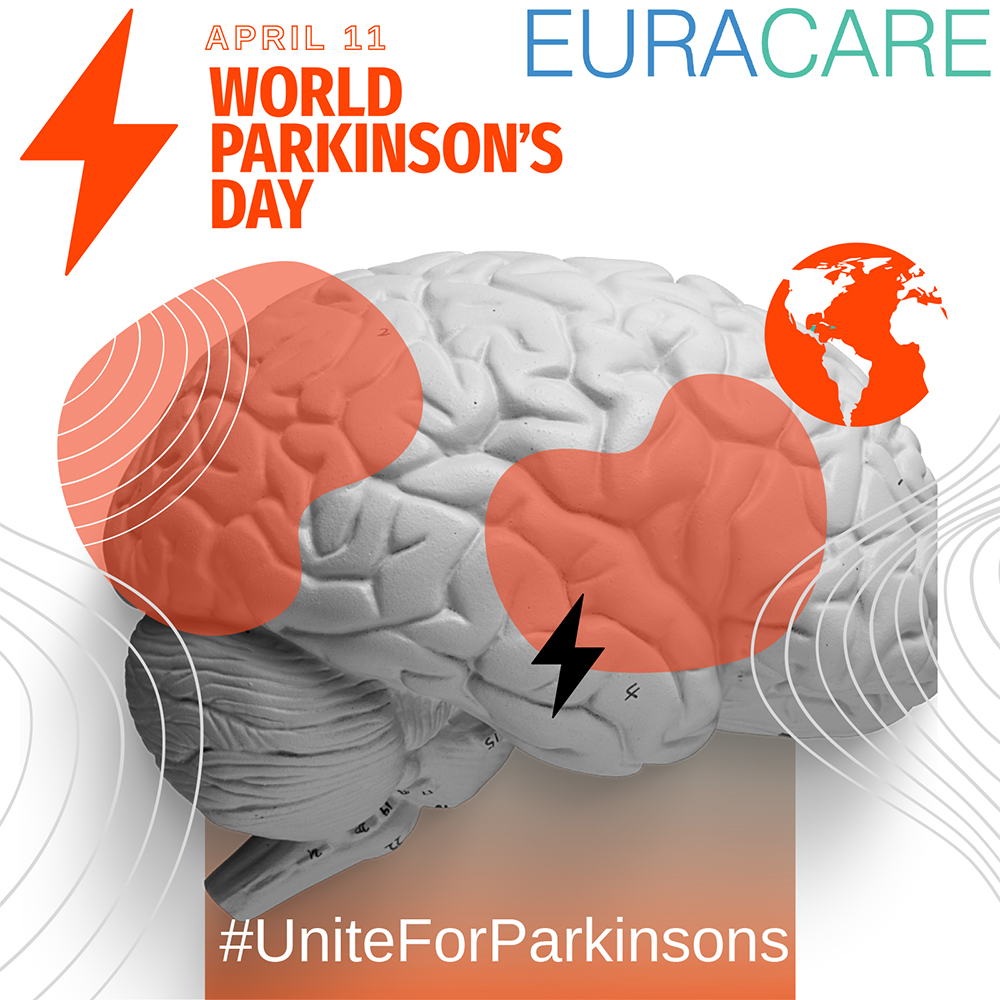
World Parkinson’s Day is April 11th
What is Parkinson’s disease?
Parkinson’s disease is a neurological movement disorder. Common symptoms include tremors, slowness of movement, stiff muscles, unsteady walking and balance, and coordination problems. The symptoms vary widely amongst individuals. Although there is no cure for the disease, there is a treatment that improves the quality of life and helps the person living with PD cope with the changes the body undergoes.
The disease usually starts out slowly and worsens over time. If you have Parkinson’s disease, you may shake, have muscle stiffness, and have trouble walking and maintaining your balance and coordination. As the disease worsens, you may have trouble talking, and sleeping, have mental and memory problems, experience behavioural changes, and have other symptoms. None of these changes are part of normal aging.
Who gets Parkinson’s disease?
About 50% more men than women get Parkinson’s disease. It is most commonly seen in persons 60 years of age and older. However, up to 10% of patients are diagnosed before age 50. Although very rare, it can occur in young adults and children.
Is Parkinson’s disease inherited?
Generally, Parkinson’s disease is sporadic, i.e. not inherited. There is some belief that some cases of early-onset Parkinson’s disease – disease starting before age 50 – may be inherited
How is Parkinson’s disease diagnosed?
The diagnosis of Parkinson’s disease is based on the clinical exam the doctor performs. There is no test for Parkinson’s disease. Your doctor will however run blood tests and a brain MRI to ensure that there is no other explanation for the symptoms you are experiencing.


World Health Day
7 April is World Health Day. It is celebrated annually and each year draws attention to a specific health topic of concern to people all over the world.
DID YOU KNOW?
*2 billion people don’t have access to safe drinking water.
*829 000n peopledie from the diarrhoeal disease every year caused by polluted water and poor sanitation.
*3.6 billion people around the world don’t have safe toilets.
*9 out of 10 people breathe polluted air.
*Air pollution kills 13 people every minute.
*Tobacco kills 600 million trees and more than 8 million people every year.
*Source:WHO


Your protection first! COVID-19 vaccination campaigns are key!
LADMA and Euracare Advanced Diagnostics & Heart Centre organized a vaccination day at the Euracare facility on 30th March; successfully administrating 55 doses + a complimentary vital sign screening…just to ensure you are in great shape!




World is Celebrating Doctor’s Day today.
We would like to take the opportunity and express our sincere gratitude for all the hard work, long hours, exceptional skills, compassion, and dedication you have put into this profession every day.
Thank You!


CFAO OSEIKROM Open House
On the occasion of the CFAO Oseikrom Kumasi Open House on 25th March, Euracare Advanced Diagnostics & Heart Centre proudly partnered with its motors subsidiary whilst conducting over 150 free Health screenings and consultations.





